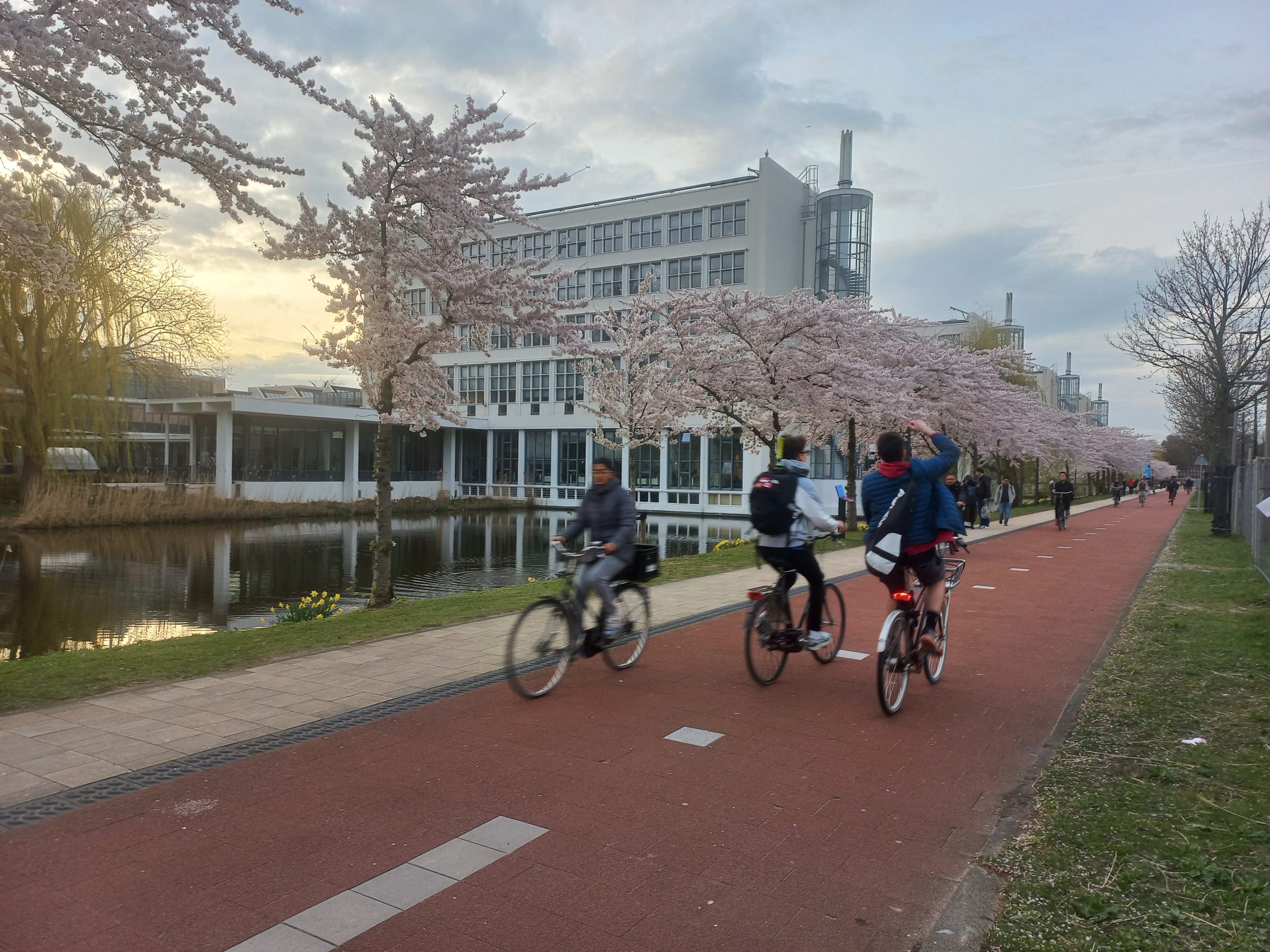The internal trade unions at TU Delft pose ‘serious questions about the continuity of the change processes required by the Inspectorate of Education’. Two Board members will only be in office for a relatively short period to come, while the unions believe that changing a culture needs long-term stable leadership.
The Executive Board's offices. (Photo: Delta)
Chair Fred Veer says that this is the ‘opinion on the process’ of the FNV, AOb and CNV trade unions within the internal consultation. Veer is also the national Chair of the university sector group of the CNV trade union and the second collective labour agreement negotiator on behalf of the CNV.
He points out that the unions are not intending to take over the work of the Supervisory Board or the Works Council, which are tasked with appointing and firing members of the Executive Board. The unions also do not refer to individuals or their performance, he continues.
Certainty
He says that the trade union constituents within TU Delft have been demanding a change in culture for a while, and that this has ramped up since it was made known that the Inspectorate of Education believes that the securing of social safety at TU Delft is not in order. He believes that the unions need to monitor the improvement process. “We all know that changing a culture takes years, and that you do not want to put a new person at the helm in the middle of a storm. We want certainty and continuity. If not, and if the Executive Board members are replaced in the next two years or so, there is the risk that their successors will take different measures to address the issues. This would mean starting from scratch again.”
Stepping down
Veer is referring to Tim van der Hagen (1959) and Rob Mudde. At the beginning of February, the contract of Van der Hagen – who is both Rector Magnificus and the Executive Board Chair – was extended. He has been the Chair since 2016. Two years later, he was also appointed as Rector Magnificus. His term of office ends in October 2026. Mudde has been Vice Rector and Vice Chair since 2018. His second term of office will come to an end in March 2026.
Neither have shown any signs of considering stepping down now that the Inspectorate has accused them of mismanagement. The issue of stepping down did arise in TU Delft’s response to the first version of the Inspectorate’s report. The Executive Board received this confidential version in November.
Parts of the text were blacked out, but not well enough and they could still be read easily. The concerns about the position of the Executive Board are in regard to a chapter in which assumed intimidation and threats by current and/or former administrators or supervisors are mentioned. This chapter is only one page long, but in it the Inspectorate draws the conclusion that there ‘is an increased risk of these types of incidents’.
Consultation
The trade unions had already distanced themselves from the intention of the Executive Board to take the Inspectorate of Education to court. They later requested an emergency meeting, in part to discuss the performance of the Undesirable Behaviour Complaints Committee. Few employees have faith in this committee, states the Inspectorate in its report.
Prior to any emergency meeting, the Executive Board has invited the trade unions for a preparatory meeting. Veer is intending to express his concerns there too about ‘safeguarding the continuity of a process in which crucial managers may need to be changed during the process’.
- Delta is looking for current and former TU Delft staff members who are willing to share their experiences. This can be done anonymously if preferred. Email tudelta@protonmail.com.
Findings
The Inspectorate of Education investigated transgressive behaviour at TU Delft from December 2022 to November 2023. In the resulting report, the investigators speak of intimidation, racism, sexism, bullying, exclusion, gossiping, social insecurity due to lack of leadership and a culture of fear, among other things. For instance, employees are said to be afraid to voice their opinions and hold each other accountable for behaviour.
The effects among TU Delft employees who have reported to the inspection are often long-lasting and hampering. The inspectorate speaks of psychological and physical health complaints, absence from work and a general feeling of insecurity. Stress, burnout, depression and PTSD, crying and tense home situations also occur, as do illness, vomiting at work, panic attacks and heart palpitations.
The inspectorate reports that TU Delft’s university administration has a lot of information regarding what is happening in terms of social safety, but that they ‘omit to add everything up so as to create a complete picture’. ‘The management’ also ‘does not adequately manage in terms of appropriate measures’. The Inspectorate believes that this is mismanagement.
Read the news and background articles on the Inspectorate’s report in our dossier.
Do you have a question or comment about this article?
s.m.bonger@tudelft.nl


Comments are closed.